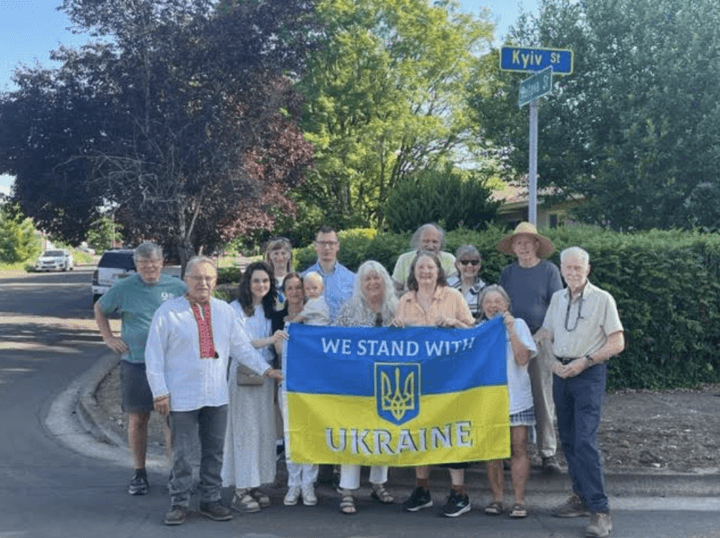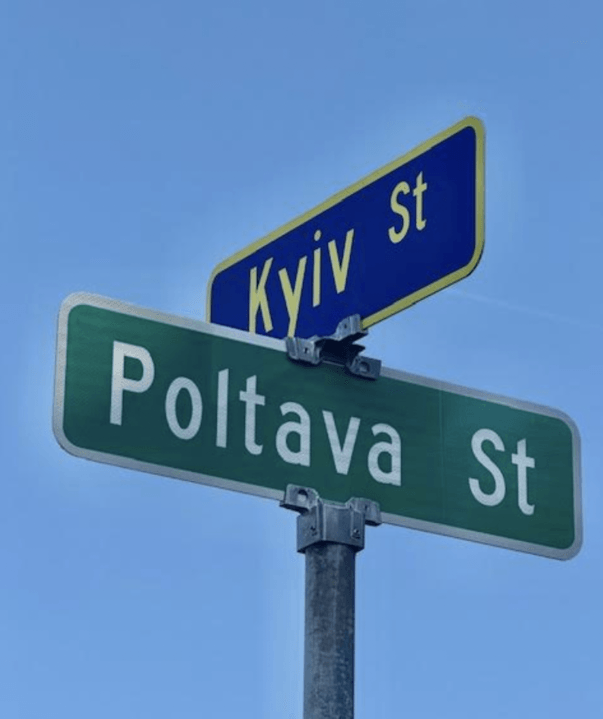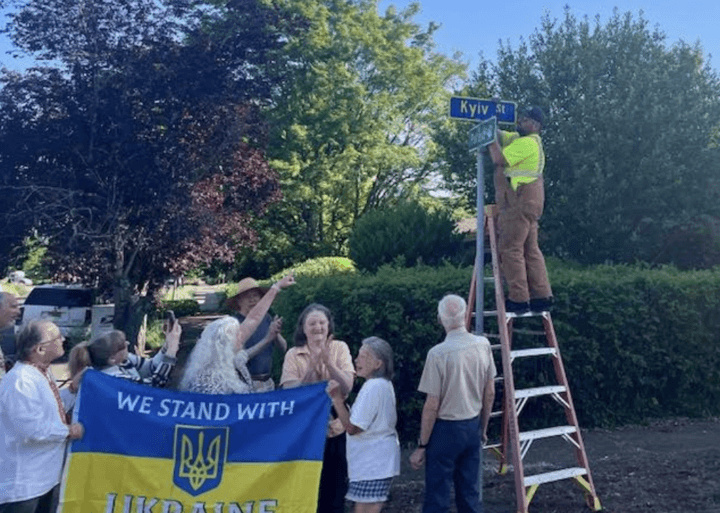Kyiv, not Kiev — Kyiv Independent community helps rename street in Oregon

A neighborhood in Springfield, Oregon, on June 10 renamed a local street from "Kiev" to "Kyiv" — a move initiated by members of the Kyiv Independent's global community.
Photos shared with the Kyiv Independent show the newly installed blue-and-yellow street sign, reflecting both the correct Ukrainian transliteration and the national colors of Ukraine.
The change comes amid a broader effort by Ukraine and its allies worldwide to move away from Russian-derived place names and honor Ukraine's linguistic and political independence.
"We're very proud of our city (Springfield, OR, U.S.) for supporting our efforts to make this happen," one community member told the Kyiv Independent.

The spelling "Kiev," pronounced "kee-yev," is the Russian version of Ukraine's capital. "Kyiv" (pronounced "keev") is the correct Ukrainian form, based on the native pronunciation and Latin transliteration.
For decades, global usage favored Russian-based spellings, a legacy of the Soviet Union's dominance and the widespread misconception that Ukrainian cities and culture were merely extensions of Russia. Even after Ukraine declared independence in 1991, much of the international community continued using names like Kiev, Lvov, and Odessa — all Russified versions.
That began to change after Russia's 2014 annexation of Crimea and its war in eastern Ukraine. The full-scale invasion in 2022 accelerated the shift, prompting governments, media outlets, and advocacy groups to adopt Ukrainian transliterations such as Kyiv, Lviv, and Odesa.

Ukraine's Foreign Ministry has promoted the change through campaigns like #KyivNotKiev, arguing that the use of correct names respects Ukraine's sovereignty and resists Russian imperial narratives.
Russian leaders, including President Vladimir Putin, have long emphasized historical ties to Kyiv in their justification for expansionist policies. Renaming streets and using correct spellings is one way communities abroad are pushing back.













